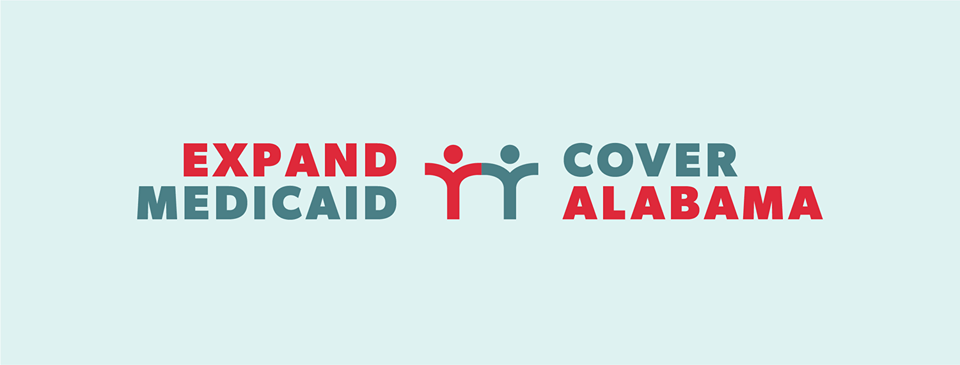The American Rescue Plan Act of 2021, signed by President Biden on Thursday, includes a number of key provisions that strengthen both public and private health insurance coverage. Among its Medicaid and the Children’s Health Insurance Program (CHIP) provisions, the American Rescue Plan encourages states to finally take up the Medicaid expansion by offering even more favorable financial incentives than those already in place and allows states to provide longer postpartum health coverage for new mothers.
Right now, some 300,000 Alabamians living in the health coverage gap. They earn too much to qualify for Medicaid under the state’s stringent income limit but too little to qualify for subsidized ACA marketplace plans. If Alabama were to expand Medicaid and provide much-needed healthcare coverage for these individuals, the state would receive an estimated $940 million over two-years for doing so.
A complete analysis of the Act and its potential impact is below.
HEALTHCARE PROVISIONS
Additional Federal Funding to States that Newly Adopt the Medicaid Expansion
- Newly expanding states would receive a 5-percentage-point increase in their FMAP for all non-expansion enrollees, who account for most of a state’s Medicaid enrollees and costs. The increase would begin the first day of the quarter that expansion begins and last for two years. Not only that, this increase is on top of the 6.2-percentage-point FMAP increase that all states will receive for the duration of the public health emergency under last year’s Families First Act, which will provide $86 billion in additional federal Medicaid dollars in 2020 and 2021.
- According to the Center for Budget and Policy Priorities (CBPP), Alabama would receive an estimated $940 million in federal funds for expanding.
New Medicaid and CHIP Option for States to Extend Postpartum Coverage for 12 Months
- The American Rescue Plan offers states a new “state plan” option to provide pregnancy-related Medicaid and CHIP coverage for one year after the end of pregnancy, extending coverage well beyond the current cutoff of 60 days. States can take up this option starting in the first calendar year quarter one year after enactment, which is April 1, 2022. The option, however, is temporary and will be available to states for five years unless Congress acts to extend it at a later time.
- The Congressional Budget Office (CBO), for example, estimates that about 45 percent of women covered by Medicaid on the basis of pregnancy now become uninsured after the end of the 60-day postpartum coverage period. Alabama is no different, and this new option would directly help address our current maternal mortality statistics.
Expansion of the State Medicaid Option for Coverage of COVID-19 Testing for the Uninsured to Include Coverage for COVID-19 Vaccines and Treatment
- The Families First legislation included a Medicaid option for states to cover COVID-19 testing for the uninsured through the duration of the public health emergency. The federal government picks up 100 percent of the cost. The American Rescue Plan expands this fully federally-funded option to cover COVID-19 vaccines and their administration, and treatment, including prescription drugs, and treatment for conditions that complicate COVID-19 treatment.
Policies to Improve the Affordability and Access of Private Insurance Coverage
- COBRA Coverage: Premiums for COBRA coverage for individuals who are laid off or leave their jobs because of the pandemic will be subsidized at 100% through September 30, 2021. The employer or health plan could claim a refundable tax credit against its Medicare payroll tax liability for the cost of the premiums.
- Affordable Care Act (ACA) Marketplace Subsidies: Refundable credits for households with income between 100% to 400% of the federal poverty level (FPL). For 2021 and 2022, premiums for individuals with income at 150% of the FPL will be eliminated, while premiums for all other households will be capped at 8.5% of their income.
- Health Insurance Marketplace: $20 million in grants to states to modernize and update health insurance marketplace systems, programs, or technology.
Public Health Provisions
- $7.66 billion to expand the public health workforce, including grants to state, local, and territorial health departments that increase the number of contact tracers, social support specialists, community health workers, public health nurses, epidemiologists, lab personnel, disease intervention specialists and communications personnel.
- $7.6 billion for testing and vaccinations at community health centers (CHCs).
- $3 billion for block grant programs under the Substance Abuse and Mental Health Services Administration (SAMHSA) to provide community mental health services and prevention and treatment of substance abuse.
- $800 million for the National Health Service Corps, as well as $100 million reserved for state student loan repayment programs, $200 million for the Nurse Corps Loan Repayment program, and $330 million for teaching health centers that operate graduate medical education.
- $250 million for states to establish “strike teams” that could be deployed at skilled nursing facilities (SNFs) with high rates of COVID-19.
